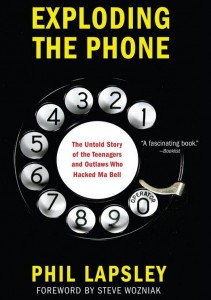Eight Alumni Authors Make Year’s Best Lists
-
-
slice.mit.edu
Filed Under
Recommended
Book critics the world over spend the month of December in earnest contemplation of what books, regardless of the crude calculus of sales figures, had the biggest impact in the year. While these lists may serve the utilitarian role of easing holiday-gift conundrums, they also are cross-sections of our times.
Judging by class notes alone, Institute alums published well over a hundred books in this calendar year. In case you missed them, here are a few notable page-turners that have made critics’ best-of lists:

- The New York Times named After the Music Stopped: The Financial Crisis, the Response, and the Work Ahead by Alan Blinder PhD ’71 to its 10 Best Books of 2013 list. “Blinder criticizes both the Bush and Obama administrations,” says the reviewer, “especially for letting Lehman Brothers fail, but he also praises them for taking steps to save the country from falling into a serious depression. Their response to the near disaster, Blinder says, was far better than the public realizes.”
- The Seattle Times named Exploding the Phone: The Untold Story of the Teenagers and Outlaws who Hacked Ma Bell by Phil Lapsley MBA ’03 to its 31 Best Titles of 2013 list. "With terrific reporting and story-telling, Lapsley has put voluptuous flesh and bones on the legendary tales of the phone phreaks,” wrote one reviewer.
- On The Economist’s list of the Best Books of the Year is Unthinkable: Iran, the Bomb and American Strategy by Kenneth Pollack PhD ’96. Pollack, the reviewer writes, reveals “why America would be mad not to endorse Barack Obama’s strategy of containment” of Iran.
- Rosalind Williams HM ’02 also appears on The Economist list for The Triumph of Human Empire: Verne, Morris and Stevenson at the End of the World. Williams’s book is a “magnificent attempt to recapture the sense, so prevalent at the end of the 19th century, that the world was finished, explored and done.”
- The Washington Post singled out Moises Naim SM ’78, PhD ’79 for The End of Power: From Boardrooms to Battlefields and Churches to States, Why Being in Charge Isn’t What It Used to Be on its Notable Nonfiction of 2013 list. “It’s not just that power shifts from one country to another, from one political party to another, from one business model to another, Naim argues; it’s this: ‘Power is decaying,’” writes the Post.
- Forbes cites Brick by Brick: How Lego Rewrote the Rules of Innovation and Conquered the Global Toy Industry by David Robertson SM ’85, PhD ’90 with Bill Breen as one its ten best of the year. The book “tells the surprising saga of how the company’s management innovated its way to success with lessons that can be applied to all sorts of businesses.”
- On Amazon’s Best Science Books of 2013 list is Lance Fortnow PhD ’89 for his book The Golden Ticket: P, NP, and the Search for the Impossible, which chronicles the history of what is arguably “the most important open problem in computer science, if not all of mathematics.”
- Also on Amazon’s science list is Scatter, Adapt, and Remember: How Humans Will Survive a Mass Extinction by former MIT student Annalee Newitz. Newitz looks back on past extinctions in earth’s history and ponders the dire consequences of the next one, which might already be happening.







